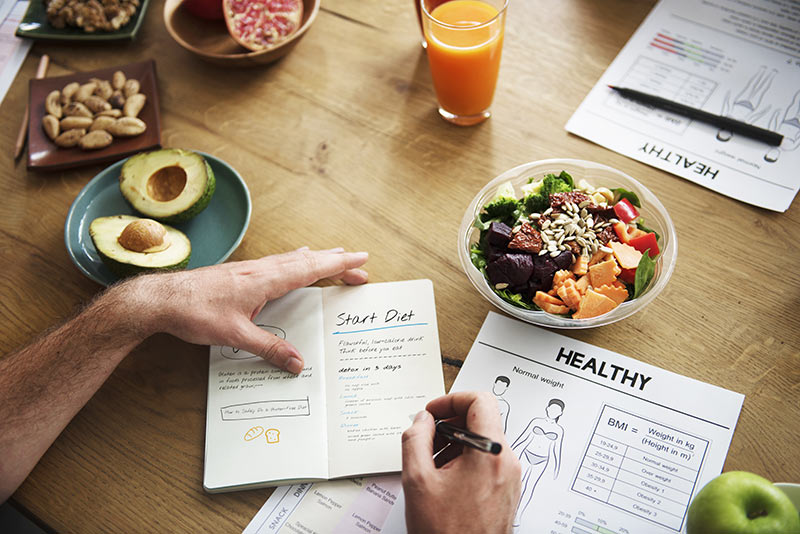Naturopathic Services
IV Therapy
What is IV therapy?
Intravenous nutrient therapy is the infusion of vitamins, minerals, amino acids and other nutrients directly into the bloodstream, helping to correct low nutrient levels and improve the overall state of your health. IV’s are used for a variety of health concerns and can be utilized by nearly every person in any state of health.
By infusing the nutrients directly into circulation, they bypass the gut and are delivered directly to your cells. For people with conditions like Crohn’s, Colitis, SIBO, IBS or any other GI issue, this can be a very beneficial treatment as nutrient absorption may be sub-optimal for those patients.
While many of the IV’s share common formulas, including Vitamin C, Magnesium, Calcium and B-vitamins, IV’s are tailored to a patient’s specific needs to ensure each patient receives exactly what they need.
What is the process like?
First appointments- please call the clinic to book an appointment and indicate it is for IV therapy. Admin will provide you with an intake form which must be completed before arriving at the clinic. Your first session includes an appointment with Dr. Morton to review your health concerns and to ensure you are a good candidate for IV therapy. If you have any current bloodwork, please bring it with you.
Return visits- please book in with admin and indicate the visit is for IV therapy.
Once the IV is hooked up and dripping, you just sit back and relax. We recommend bringing a book, a tablet to watch a show or just closing your eyes and taking a rest. Treatments last between 45 minutes and 2 hours.
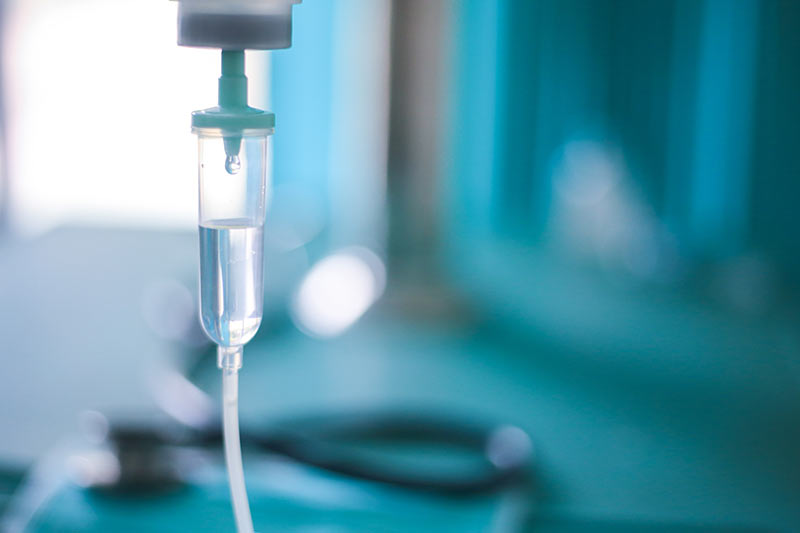
What can IV’s treat?
Fatigue
Anxiety
Depression
Dehydration
Acute asthma attacks
Migraines
Chronic fatigue syndrome
Fibromyalgia
Acute muscle spasm
Upper respiratory tract infections
Chronic sinusitis
Seasonal allergies and rhinitis
Cardiovascular disease
To enhance athletic performance
Chelation therapy is an intravenous therapy that has been found to be effective in treating heart disease, degenerative neurological diseases and heavy metal toxicity. Before beginning chelation therapy you will need to perform a heavy metal lab assessment.
High dose Vitamin C is a commonly used adjunctive treatment in many forms of cancer. It has been found to kill cancer cells and many patients find it improves their quality of life when undergoing conventional treatment.
What’s the difference between an IM (intramuscular injection) and an IV?
IM injections are 1.5-3.0ml injections that go directly into the muscle. These are done in the shoulder or glute and are very quick and easy.
IM injections offered at Backfit include B-12, B-complex, Stress Support, Slim Shot (a lipotropic fat-burn support), Energy Blast, Chill Out and Brain Power for focus and concentration.
Does it hurt?
There can be a slight pinch with the insertion of the catheter, but once things are dripping there isn’t much pain. If you are experiencing discomfort, let the doctor know so that he can make adjustments for you.
How can I prepare?
Please be well hydrated and eat a meal 1-2 hours before your IV.
When will I feel the effects?
Some patients feel the effects immediately and notice a change that day. Others need 3-4 IV’s before they really feel a change in their energy/mood/sleep/condition. Everyone is different and is at a different place with their health so there is no easy answer.
How many IV’s will I need?
Just as above, there’s no straight-forward answer, but usually doing one IV per week for 4-6 weeks will give you a good idea about what IV therapy can do for you.
Acupuncture and IMS
What is acupuncture?
Acupuncture is the insertion of fine needles into specific points of the body to achieve a therapeutic effect. The needles affect the movement of an energy source called “Qi” which is stored along channels throughout the body. When Qi becomes imbalanced, stagnant or depleted, people’s health will decline. Acupuncture aims to restore the balance and flow of Qi, thereby improving the patient’s health.
What is the process like?
In your initial visit we will go through a full history and obtain a thorough understanding of your health concerns. Your tongue and pulse will be assessed to help determine appropriate acupuncture points for your treatment. After the assessment, an initial treatment can often be provided.
For follow-up visits, there will be a quick check-in but there will be more time spent on treatment.
Treatments are typically 30 minutes in length.
What can acupuncture treat?
Acupuncture has been acknowledged to be effective in treating a variety of health concerns including gynecological, cardiovascular, respiratory, pain, mental health, gastrointestinal, neurological and even symptom management from the adverse reactions from chemotherapy and radiation.
Does acupuncture hurt?
There may be a slight pinch when the needle is inserted but it often recedes within a few seconds. If there is lasting pain, please tell the doctor so he can make adjustments. Most patients find acupuncture to be very relaxing and people often fall asleep on the table.
How many acupuncture sessions will I need?
It really depends on the person, but often between 4-8 acupuncture sessions will show benefit. Often, people will decrease their appointments over time and come in for monthly ‘tune-ups’ to keep things balanced.
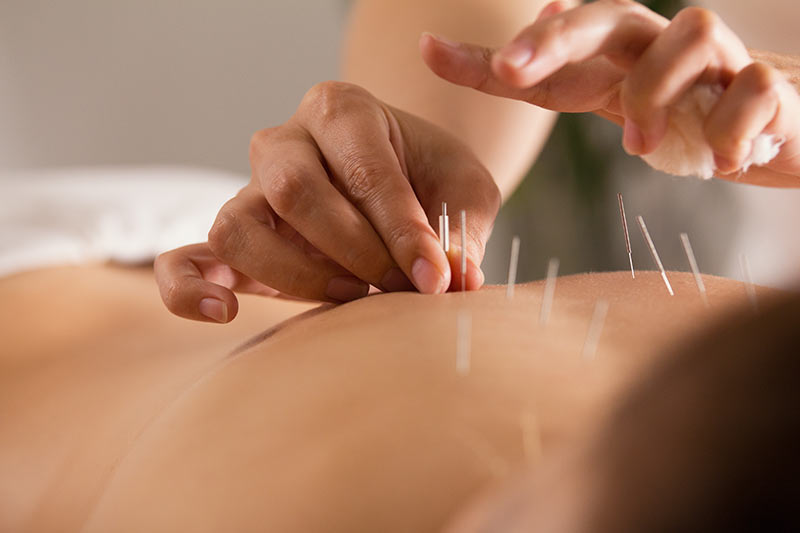
What is IMS?
Intramuscular stimulation involves the insertion of acupuncture type needles into shortened, contracted and often painful muscles. With IMS, we target what is called a neuromuscular junction, that will first stimulate the muscle twitch or grab, and then relax and return to its normal state. The muscles are treated solely with mechanical insertion of the needles- there is no electric stimulus provided.
What is the process like?
There must first be a full work-up to determine the root of your problem. This will likely involve a short history gathering followed by orthopedic tests and palpation of the muscles. Once the problem area has been determined, needles are inserted into the area and a twitch is often provoked. The amount of points needles depends on the patient’s concern and tolerance.
What can IMS treat?
A wide range of musculoskeletal problems can be successfully treated with IMS including the following:
- Achilles tendonitis
- Carpal tunnel syndrome
- Chronic tendonitis
- Chronic pain
- Frozen shoulder
- Golfers elbow
- Headaches
- IT band syndrome
- Jaw and TMJ pain
- Low back pain
- Neck pain
- Knee pain
- Piriformis syndrome
- Plantar fasciitis
- Repetitive strain injuries
- Sciatica
- Shin splints
- Shoulder pain
- Sports injuries
- Tennis elbow
- Trigger finger
Does IMS hurt?
Most patients find IMS to be uncomfortable during the procedure, and the pain or discomfort will often persist for 24-48 hours. It can be quite a surprise for some patients how strong a small needle can feel. To help with the pain it is recommended to use heat, taking a hot bath or shower, massaging the area and doing some light stretching or just ‘normal physical activity’ to encourage blood flow to the area. Applying ice or a cold pack before bed may be advisable as well.
How many IMS appointments will I need?
It really depends on the type of injury (chronic, acute, severe, minor…) and the patient (age, health status) but typically patients find relief after 4-6 sessions and significant relief after 8-10. There are some patients that notice immediate relief after just one treatment.
So what’s the difference between acupuncture and IMS?
Acupuncture focuses on putting needles into specific locations to help balance the flow of Qi in the body and it has more of an energetic focus. IMS focuses very specifically on anatomy, physiology and function of muscles, ‘trigger points’ and nerves in the area to decrease pain and increase function more directly.
Naturopathic Medicine
Comprehensive Lab Tests (hormones, food sensitivities, genetic, SIBO, nutrients)
Naturopathic Doctors can order through LifeLabs in British Columbia, but we also have access to private labs that can go more in depth with their testing.
Lab testing can help solve stubborn problems like hormone imbalances, digestive disorders, chronic pain, inflammation, brain fog and much more.
Full physical screening exams
Naturopathic Doctors are trained to take patients through full physical exams- something that should be done for everyone! From top to bottom- neurological, cardiovascular, respiratory, musculoskeletal and more are all tested.
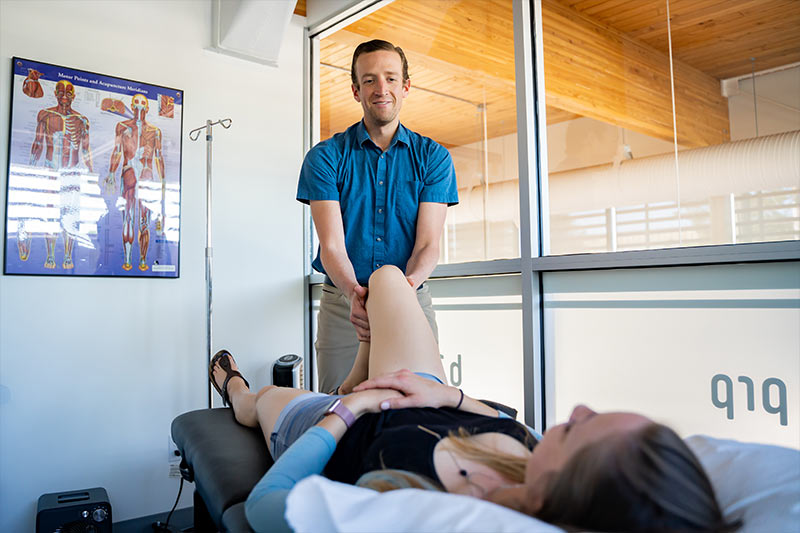
Platelet-Rich Plasma
What is PRP?
Platelet-rich Plasma is a regenerative injection therapy that is utilized for a wide range of musculoskeletal injuries and pain. It is a concentration of platelets, growth factors and stem cells derived from your own blood to help the body’s innate healing capabilities. Concentrating these factors and reinjecting them begins repairing the damaged area and improves the signaling and recruitment of mesenchymal stem cells to facilitate further repair. Tendons and ligaments have poor vasculature by nature and can take much longer to heal than tissue with good blood supply- PRP circumvents that issue and helps those areas to heal faster.
What is the process like?
Before any blood is taken, the patient is assessed. We go through the history of your problem and health, do a full orthopedic exam and special tests to identify the problem. We do this to ensure you’re a good candidate and be as specific as possible with our injection. The process begins with collecting 30-60cc of blood from the patient. It is then spun down in a specialized centrifuge to concentrate the platelets, stem cells and growth factors into a small amount of plasma (5-10cc). This solution is then reinjected into the area of damage to begin tissue regeneration and proliferation. This whole process takes between 60-90 minutes.
What can it treat?
PRP is used for a variety of acute and chronic joint, tendon and ligament injuries. Some of the more common problems include:
- Tennis and golfer elbow
- Plantar fasciitis
- Chronic ankle sprains (inversions and eversions)
- Achilles tendonitis
- Rotator cuff tears
- Headaches
- Runner and Jumper’s Knee
- Shoulder dislocations and instability
- Meniscal tears
- Osteoarthritis
- Chronic low back and neck pain
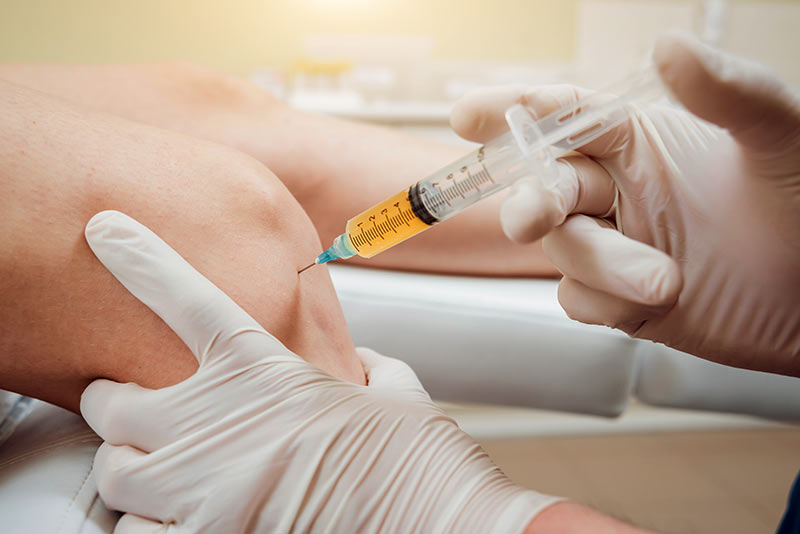
What is the difference between PRP and prolotherapy?
Prolotherapy and PRP can be used to treat the same issues, but PRP tends to require fewer injections and is often indicated when prolotherapy does not seem to be sufficient or its effects have plateaued. Certain patients that may have a more difficult time healing are likely better suited for PRP.
What are the risks and side-effects?
The injection can be tender or painful (we are injecting into a damaged area after all) and there may be swelling, bruising and discomfort for 24-48 hours after the treatment. As with any medical procedure that punctures the skin, there is risk of infection, but the site is cleaned and sterilized before injection.
How many injections will I need?
Each person and condition is different but the majority of patients require 2-6 sets of injections at 4-6 week intervals. Patients may notice benefit after one treatment, and as the body does take time to heal, maximal benefit may not be noticed for 6-12 months.
How can I prepare for the injection? What can I do after?
The healthier you are before and after the treatment, the better the body will respond. This means trying to optimize diet, exercise, nutritional supplementation, sleep/rest and hydration while decreasing harmful activities like smoking, alcohol and stressful situations. During the intake we will discuss important factors of health and make an individualized plan for each patient.
It is also recommended to stop use of corticosteroids, blood thinners and anti-inflammatory medications (Ibuprofen, Aspirin, Advil) for one week before the procedure.
Prolotherapy
What is prolotherapy?
Prolotherapy (Proliferative Therapy) is a recognized orthopedic procedure that stimulates the body’s healing processes to strengthen and repair injured and painful joints and connective tissue. It is based on the fact that when ligaments or tendons (connective tissue) are stretched or torn, the joint they are holding destabilizes and can become painful. A major issue is that ligaments and tendons have poor blood supply, causing their healing time to be lengthy and possibly incomplete. Prolotherapy, with its unique ability to directly address the cause of the instability, can repair the weakened sites and produce new collagen tissue, resulting in permanent stabilization of the joint. Once the joint is stabilized, pain usually resolves. Prolotherapy injections contain natural substances that stimulate local and precise inflammation followed by a healing response, as well as local anesthetic agents to help with the pain of the injection. Traditional formulas include ingredients such as dextrose, saline, and procaine or lidocaine.
What is the process like?
First a patient goes through a thorough assessment- history of the issue, factors of health, orthopedic tests- to determine if they’re a good candidate for prolotherapy and exactly what and where the problem is. Once the location (or locations) for injection is determined, the patient is prepped and the area is sterilized. There may be some acupuncture and IMS done prior to injection to help release tight muscles and decrease the pain. Syringes of prolo solution are then prepped and the injections are performed. The first visit requires approximately 45 minutes and follow-up visits are 30 minutes.
What can it treat?
Prolotherapy is used for a variety of acute and chronic joint, tendon and ligament injuries. Some of the more common problems include:
- Tennis and golfer elbow
- Plantar fasciitis
- Chronic ankle sprains (inversions and eversions)
- Achilles tendonitis
- Rotator cuff tears
- Headaches
- Runner and Jumper’s Knee
- Shoulder dislocations and instability
- Meniscal tears
- Osteoarthritis
- Chronic low back and neck pain
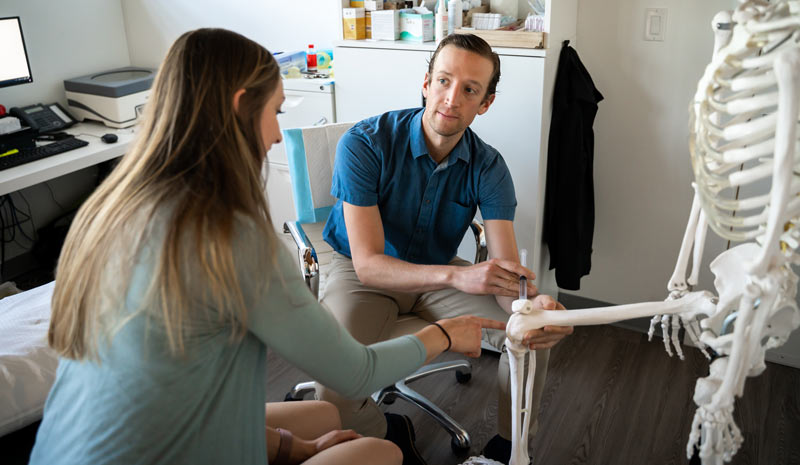
What is the difference between prolotherapy and PRP?
Prolotherapy and PRP can be used to treat the same issues, but PRP tends to require fewer injections and is often indicated when prolotherapy does not seem to be sufficient or its effects have plateaued. Certain patients that may have a more difficult time healing are likely better suited for PRP.
What are the risks and side effects?
The injection can be tender or painful (we are injecting into a damaged area after all) and there may be swelling, bruising and discomfort for 24-48 hours after the treatment. As with any medical procedure that punctures the skin, there is risk of infection, but the site is cleaned and sterilized before injection.
How many injections will I need?
Each person and condition is different but the majority of patients require 2-6 sets of injections at 4-6 week intervals. Patients may notice benefit after one treatment, and as the body does take time to heal, maximal benefit may not be noticed for 6-12 months.
How can I prepare for the injection? What can I do after?
The healthier you are before and after the treatment, the better the body will respond. This means trying to optimize diet, exercise, nutritional supplementation, sleep/rest and hydration while decreasing harmful activities like smoking, alcohol and stressful situations. During the intake we will discuss important factors of health and make an individualized plan for each patient.
It is also recommended to stop use of corticosteroids, blood thinners and anti-inflammatory medications (Ibuprofen, Aspirin, Advil) for one week before the procedure.
Nutrition, Supplements, and Pharmaceutical Medications
Clinical Nutrition with a focus on Plant-Based Nutrition for chronic disease
Plant-based nutrition is a passion of mine and I feel that there is no stronger medicine than a whole foods, plant-based diet. Through proper nutrition, it is possible to prevent and cure some of the most common and deadliest diseases in North America- heart disease, diabetes, obesity, hypertension and cancer. What does this mean? It means cutting back (or eliminating) meat, dairy, eggs and seafood while consuming more whole grains, legumes, fruits and vegetables.
Professional Grade Supplements
We can review the supplement regimen you are currently on, get rid of what’s unnecessary and come up with a targeted plan containing high-quality supplements that will help you feel your best. Naturopathic Doctors have access to supplements that you can’t get in health food stores and are of superior quality.
Pharmaceutical Medications
Naturopathic Doctors can write and renew prescriptions for patients here in BC. This means that ND’s can prescribe a wide-range of medications, including bio-identical hormones.
